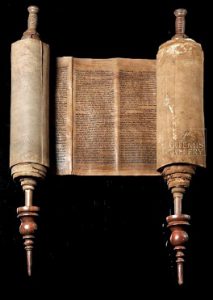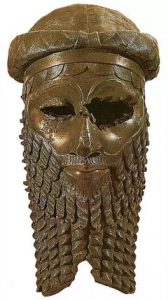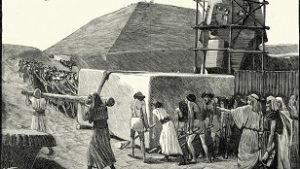This is mark Joseph “young” blog entry #421, on the subject of Did Moses Write the Torah?.
This is a continuation of a response to the article Ten Reasons Why the Bible’s Story of the Exodus Is Not True, requested by a Facebook contact.
- The introductory article was #415: Can the Exodus Story Be True?
- It was followed by an answer to the first objection, #416: Does Archaeological Silence Disprove the Exodus?
- Turning to the second objection about whether such a departure could be organized, we offered #417: Is the Beginning of the Exodus Account Implausible?
- The third objection was that given the number of escaping Israelites the line this would have created would have been too long to outrun Pharaoh’s chariots, to which we offered #418: Are There Too Many People Escaping in Exodus?
- The fourth objection was summarized and answered in #419: When Escaping in Exodus, Did the Israelites Have Too Much Luggage?
- In response to the fifth objection we wrote #420: Were the Hygiene Requirements in Exodus Impossible to Observe?
The article’s sixth objection is “Moses did not write any of the Torah”.

That sounds dramatic, but the questions really are, is that true, and is that relevant?
To approach this statement, one needs to get a bit of a history of theology lesson. In the nineteenth century a major movement began on the principle (which we have already mentioned) that miracles never happened, and therefore any accounts which report them having happened are false, and have to be explained somehow. People fumbled around trying to explain how the five books we call the Books of Moses, also the Torah or the Pentateuch, came to be. Then near the end of that century a couple scholars named Graf and Welhausen proposed what they called the Documentary Hypothesis. It is rather complicated, but in essence they divided the entire corpus into four documents which they asserted were written at different times by different authors and pieced together to create what we have. The evidence for this was that there were differences in writing style and content that one could not only identify but also demonstrate were more primitive or more advanced, that is, that one document was clearly the oldest, another clearly the newest, and the remaining two fairly clearly positioned in sequence between them.
They named these the “Jahwist” or “Yahwist”, characterized by the use of the Tetragrammaton, the “Elohist”, using “Elohim” or “Lord” predominantly for the name of God, the “Priestly”, primarily concerned with rules and functions for priests and sacrifices, and the “Deuteronomist”, who invented all the regulations needed for running the society. The “J” document, they asserted, was the oldest, possibly dating from the time of the judges, possibly from one of the tribes, while the “E” document came later, perhaps when the kings of Israel came to be, in the time of Samuel. The “P” document was probably connected to Solomon and the building of the temple, and the “D” document was the last, probably the “lost book of the law” discovered according to II Kings 22 during the time of Hilkiah, which some suggest Jeremiah had a hand in composing. The proof of the theory was supposedly that it was self-evident that these documents created by carefully dividing the text were from different periods of history, in the order JEPD.
This was a complicated process. There were places in which the duo removed one or two words from what they said was an elohist section of the text which they claimed was an addition from the hand of the deuteronomist, and similar adjustments. Yet the theory was rapidly embraced, because it provided an explanation for the existence of the Torah that meant none of it was true, none of it was ancient, and none of the miracles ever happened.
Of course, it became the foundation for discussion, as other scholars wanted to participate in understanding this notion. Some suggested that the elohist was more primitive than the yahwist, others that the deuteronomist predated the priestly, and over the course of time scholars put the four documents in every one of the twenty-four possible sequences chronologically.
In case you missed the problem, though, the proof that these actually were a valid four original documents redacted to create the Torah was that one was quite obviously the oldest and most primitive and the others clearly fell into place as the religion matured. Yet if scholars can’t agree as to which is the most primitive, the basis for asserting that these documents have any validity at all collapses.
Still, the Graf-Welhausen Documentary Hypothesis in one form or another is the explanation for the books embraced by nearly all liberal scholars, because the alternative is to believe that Moses was responsible for writing them and that they are true, miracles and all.
The article, though, gives several quibbling reasons to support the assertion that Moses didn’t write it–that it sometimes refers to him in the third person, it never claims to be written by him, he could not be humble and write that he was, it reports details of his death, it speaks of a time before there were kings suggesting that it was written after there were kings, some people are identified by different names in different places, and there are geographical anachronisms. The last of those is the next objection, so we will defer it.
When it is said that Moses wrote the five books attributed to him, it does not mean that he necessarily composed every word of it himself. For example, the structure of Genesis strongly suggests that records had been kept by the eldest sons descended from Seth through Jacob and stored in the libraries of Egypt–both Joseph and Moses had connections to the royal house of Egypt and so could access those libraries–and thus that Moses primarily redacted those earlier writings, putting them into a format that could be taken with him on their departure. It is also entirely likely that he dictated portions of the text and similarly directed others concerning what to record–it might reasonably be that the specific design of the tabernacle was described by Moses to those responsible for its construction, and recorded by scribes as it was accomplished. Those scribes would have recorded some events that Moses performed, and completed the record with his death and burial.
As to the names, it was common for ancient persons to be known by different names, often because of their involvement with different cultures and languages. Even as late as the New Testament we have several persons who are identified as being known by two or even three different names for various reasons. Saul of Tarsus was eventually more famously known as Paul. It is a mistake to think that Jesus changed his name–there is no record of Jesus calling him that in their brief encounter–and it is far more likely that the boy born in a devout Jewish household in a Roman city was given both a good solid Jewish name and a secular name for doing business with the world around them.
The reference to the kings connects closely to the anachronisms, which is the next objection to be addressed.
It might be argued that Moses himself did not actually write a word of the entire Bible. Yet it is clearly true that Jesus did not actually write a single word of the entire Bible, either. What matters is that their words were accurately recorded and, in the case of Moses, that he was responsible for the creation of the books later attributed to him. Thus whether or not he put pen to paper (or stylus to tablet) is irrelevant to the question of whether the events reported about him are true.









